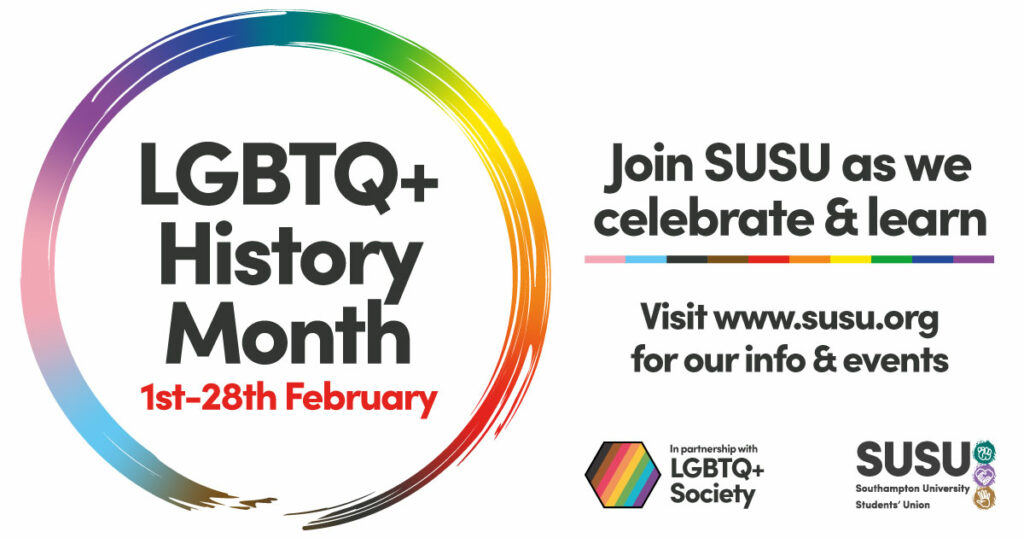Home » History That Matters: LGBTQ+ History Month
- July 4, 2023

In the UK, there is a long history of legislation that protects the rights of LGBTQ+ individuals and seeks to promote equality.
Here are some key pieces of legislation that relate to LGBTQ+ issues in the UK:
- The Equality Act 2010: This Act provides protection from discrimination on the grounds of sexual orientation, gender identity, and other protected characteristics. It applies to various areas of life, including employment, education, and the provision of goods, facilities, and services.
- The Gender Recognition Act 2004: This Act allows trans individuals to apply for a Gender Recognition Certificate (GRC), which allows them to change their legal gender on their birth certificate and other official documents. In order to obtain a GRC, trans individuals must go through a lengthy and often invasive process, including providing evidence of their transition and living in their acquired gender for at least two years.
- The Marriage (Same Sex Couples) Act 2013: This Act legalised same-sex marriage in England and Wales. Prior to this Act, same-sex couples could enter into civil partnerships, which offered many of the same legal protections as marriage but did not carry the same cultural significance.
- The Scottish Parliament passed the Marriage and Civil Partnership (Scotland) Act 2014, which legalised same-sex marriage in Scotland.
- The Sexual Offences Act 1967: This Act partially decriminalised homosexuality in England and Wales. It was a significant step towards LGBTQ+ equality, but it did not fully equalise the age of consent for same-sex and opposite-sex sexual activity, which was not addressed until the Sexual Offences (Amendment) Act 2000.
- The Scottish Gender Recognition Act (SGRA) is a bill that was introduced in the Scottish Parliament in 2018. The bill aims to reform the process of gender recognition for trans people in Scotland, making it more streamlined, less medicalised, and less bureaucratic. Including lowering the age to apply for a GRC from 18 to 16 and legally recognising Non-Binary people. The SGRA has been met with opposition by the UK government who have caused a constitutional crisis by invoking section 35 of the 1998 Scotland Acts in an unprecedented move to prevent the SGRA passing into law.
Laws regarding LGBT rights vary widely around the world. While some countries have made significant progress in protecting the rights of LGBT people and promoting equality, others have laws that discriminate against or criminalise LGBT people.
In some countries, same-sex sexual activity is still criminalised and punishable by imprisonment or even death. For example, in countries like Iran, Saudi Arabia, and Yemen, homosexuality is considered a crime and can be punished by imprisonment, flogging, or execution.
Other countries have laws that discriminate against LGBT people in other ways. For example, in many countries, it is illegal to change one’s legal gender, and in some places, trans people are required to undergo forced sterilisation or other invasive procedures in order to have their gender recognised. Additionally, many countries do not have laws protecting LGBT people from discrimination in the workplace or other areas of life.
There are also many countries that have made progress in protecting the rights of LGBT people. For example, in the United States, many states have legalised same-sex marriage and have laws protecting LGBT people from discrimination. Similarly, in Canada, same-sex marriage has been legal since 2005, and discrimination on the grounds of sexual orientation and gender identity is prohibited.
In some countries in Europe, such as Netherlands, Belgium, Spain, Portugal, UK, Ireland, Denmark, Sweden, Norway, Finland, Iceland, France, Germany, Luxembourg, Malta, Austria, Croatia, Greece and Cyprus, same-sex marriage is legal, and there are strong anti-discrimination protections in place. But in other countries in Latin America such as Argentina, Brazil, Colombia, Ecuador and Uruguay, same-sex marriage is legal and there are laws protecting LGBT people from discrimination.
It is important to note that laws alone do not necessarily reflect the reality on the ground, and even in countries where LGBT rights are protected by law, discrimination and violence against LGBT people can still occur.
In the global context, there are many organisations such as Amnesty International, Human Rights Campaign, ILGA, etc. that work to promote and protect the rights of LGBT people around the world. They monitor the situation of LGBT rights in different countries and raise awareness about human rights abuses and discrimination against LGBT people.
Roux Davis
LGBTQ+ Officer 22/23